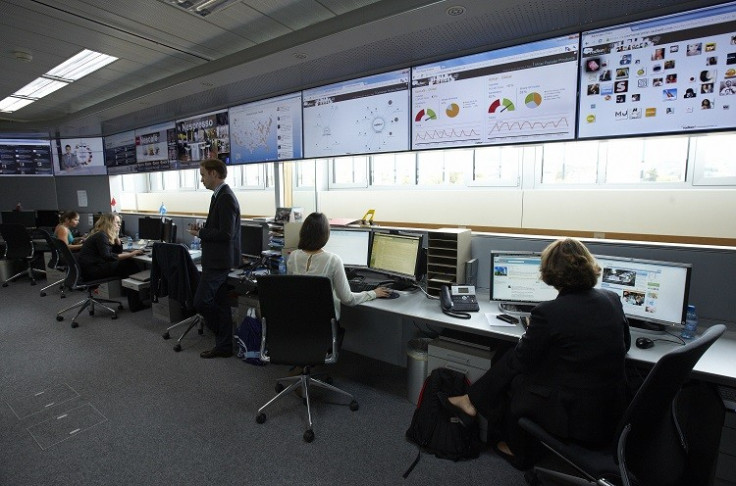Digital business transformation should be continuous and not a corporate end-goal
Ability to transform organisational structure, tech, capabilities and processes is vital to success in a volatile market.

For years now, the concept of "digital transformation" has been treated as the "Holy Grail" of business. Transformation is necessary to both survive the changes wrought by digital technologies and capitalise on the opportunities they present.
The ability to transform organisational structure, technology, capabilities and processes is therefore seen as vital to success in an exceptionally volatile market. The quest for transformation has become a critical goal, an objective to be achieved, a fixed point in time at which the company can proudly claim "we have transformed". However, this is the wrong approach.
We now operate in a dynamic world where the pace of technology-driven change is rapid, unprecedented and unforgiving. And this pace is only increasing. We are at a point where there is no longer time, or even visibility, to implement a multi-year transformation programme. Transformation must instead be viewed as a continuous process.
A constantly evolving organisational structure should be the new normal. For incumbents not designed to move quickly or in an agile manner, "to transform" is difficult enough. But to spearhead perpetual transformation is an immense challenge for a chief executive officer.
Implementing such a shift, though daunting, is possible. While exactly what this involves will be specific to particular industries and different for each company, there are five core competencies that will have to be built out within any company if it is to operate in a state of constant evolution.
1) Awareness
Having a clear view of the outside world, the ideas and breakthroughs that might affect your industry is crucial in determining how your company should evolve. While this might happen naturally throughout the company, with so much information to evaluate there should be a process put in place. Consider setting up a group of passionate people within the organisation to be "watchers". They can act as catalysts for awareness throughout the wider business.
2) Innovation
While an inspirational idea is commonly thought of as the primary challenge when innovating, but this is only a small part of what it takes. True innovation is not just about the initial creativity, but rather about fully vetting ideas to make sure they can spread throughout the organisation. Organisations must ensure that there is a strong governance model, with senior leadership support, to implement innovations across the enterprise. Additionally, creating a truly cross-functional team and closely involving business units will help avoid isolation, enrich ideas and spread them more widely.
3) Discipline
Awareness and innovation must be allied with a disciplined focus if the organisation is to avoid being pulled in multiple directions. While it is important to have a steady flow of ideas and new technologies being explored, not all will be winners. Indeed, the majority won't be. In the new world, where opportunities are more abundant but less certain, the decisions about what not to do are more vital than ever.
Historically, the pharma industry is a good example of an industry that has good discipline. There, organisations are in a perpetual cycle of innovation and research, yet only two or three projects will receive full funding and development. Companies across all industries will need to develop a similar capability in order to make disciplined choices.
4) Execution
If it is to be in a constant state of flux, an organisation must have the structure, technology and systems to enable it execute change almost instantly. This will involve creating an IT environment that fully leverages the cloud and utilises modern DevOps processes to create faster, lighter IT cycles. Having a modern IT environment and the processes to support it is vital when looking to enable the entire organisation to move at the speed the market will require.
5) Change management and workforce training
The final, yet in a sense the most important core competency is in managing swift change. Over the years, organisations have built the capacity to manage change around large events, be it an organisational shift, a new product launch, or a new IT system.
These events are typically known well in advance of the actual change and preparation, whether it is communication, training, adapting business processes or some other requirement, is normally well-structured. As we move towards more rapid, potentially incremental change it is important to make sure these activities are geared to accommodate new, shorter cycles.
For established companies, the greatest challenge in instilling these competencies is likely to come from within. To survive the last 20 years, as the role of technology has substantially increased, Enterprises have become excellent at evolving in a very structured, binary manner.
This very deliberate evolutionary mindset, alongside the size and complexity of incumbents - assets that have served so well in a traditional marketplace - are now proving the greatest barriers to the continuous transformation enterprises will need if they are to continue thriving.
Those that will succeed in a rapidly changing world will be the organisations that strike a balance between maintaining this focused mindset and evolving their structures to foster the agility required to rapidly adapt.
Dee Burger is the Head of Digital Services and member of the Group Executive Committee at Capgemini, a position he was appointed to in January 2016. Prior to his current role, Dee held the position of Head of Capgemini Consulting and its Innovation & Digital Services (IDS) unit in North America. In his career span of over 20 years, Dee has also held the position of vice president in Ernst & Young's Telecommunications practice before joining Capgemini.
© Copyright IBTimes 2024. All rights reserved.






